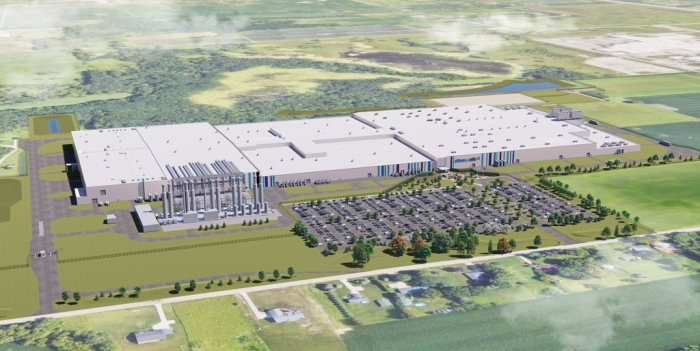GM asks LG Energy to share huge portion of US EV tax benefits
Other automakers may ask battery makers to share the AMPC benefits, could prompt cell producers to reconsider JV strategy
By Nov 30, 2023 (Gmt+09:00)
LG Chem to sell water filter business to Glenwood PE for $692 million


KT&G eyes overseas M&A after rejecting activist fund's offer


Kyobo Life poised to buy Japan’s SBI Group-owned savings bank


StockX in merger talks with Naver’s online reseller Kream


Meritz backs half of ex-manager’s $210 mn hedge fund



General Motor Co., the leading US automaker, has asked LG Energy Solution Ltd., the world’s second-largest electric vehicle battery manufacturer, to share up to 85% of its tax benefits in the country, adding to concerns over the profitability of the cell industry already under pressure from slow EV growth.
GM is requesting that LG Energy share more than half and up to 85% of the advanced manufacturing production credit (AMPC) the South Korean company receives through their 50:50 battery joint venture Ultium Cells LLC in the form of dividends, according to industry sources in Seoul on Thursday. In exchange, the carmaker has offered to guarantee the joint venture’s profit margin above certain levels, the sources said.
Under the AMPC program, eligible battery makers can receive tax benefits, including a $35 tax credit per 1 kilowatt-hour produced by a battery cell and a $10 tax credit per 1 kWh battery module manufactured in North America.
LG Energy officials declined to comment, while GM officials were not available for comment.
LG Energy, the first among the three South Korean battery makers to begin production in the US, has started reflecting the AMPC benefits in its operating profits. It earned 426.7 billion won ($329.1 million) from the program in the first three quarters of this year, 23% of its operating profit during the period. The benefits are expected to grow to billions of dollars from next year.
SURPRISE
GM’s request of up to 85% was surprising since the South Korean battery sector had expected only half as the automaker has a 50% stake in Ultium Cells, industry sources said.
“It is an excessive demand. But it will be hard for the battery maker to flatly turn down the request, given the industry dynamics,” said one of the sources.
Other automakers are likely to follow suit with such demands, putting pressure on South Korean battery producers, industry sources said.
“Carmakers can claim their contribution since battery manufacturers receive the AMPC benefits only after EVs equipped with locally made batteries are sold,” another source said.
South Korea’s three battery makers – LG Energy, SK On Co. and Samsung SDI Co. – are scheduled to start operations of 11 cell factories in North America, the world’s second-largest EV market, from next year.
They have actively been investing in the region to benefit from the AMPC program, which the US government has put in place to boost the domestic industries related to EVs.
OBLIGED TO SHARE BENEFITS
LG Energy is operating and building two plants of its own and six joint factories with automakers in North America for a combined annual capacity of 318 gigawatt-hours (GWh), the largest in the region. Three of these factories were joint investments with GM.

SK On and Samsung SDI, the world’s No. 5 and No. 6 players, are building three factories each there in cooperation with GM, Ford Motor Co. and Stellantis N.V., respectively, which are slated to start mass production in stages from 2025.
Those three battery makers are expected to earn about 10 trillion won in tax credits from the AMPC program in 2025, according to analysts in Seoul.
Such a rosy outlook became murky in the second half as Panasonic Holding Corp., the largest battery supplier in the US, deducted 24.2 billion yen ($164 million), about half the expected benefit of 45 billion yen from the AMPC program in the second quarter, from its operating profit to share the benefits with automakers.
Panasonic is jointly operating a production line to produce 50 GWh of batteries a year with Tesla Inc., the world’s top EV maker, at its Nevada Gigafactory.
WHITE ELEPHANT?
That prompted LG Energy to talk about sharing the AMPC benefits with automakers, starting with GM.
The maker of the Chevrolet Bolt EV may have asked for them to share up to 85% of the benefits to take the initiative in the negotiations, industry sources in Seoul said.
“GM seemed to make such an excessive request to improve its cash flow,” said an official at an automaker in Seoul. “It looks like GM is trying to collect as many AMPC benefits as possible to deal with surging costs and shrinking production.”
The Detroit automaker reduced expected net income attributable to stockholders for 2023 to a range of $9.1 billion to $9.7 billion, compared to the previous outlook of $9.3 billion to $10.7 billion. The company was hit by the United Auto Workers strike in the US while struggling to solve problems at its Cruise self-driving vehicle unit and rollout of its new EV models.
South Korean battery players may reconsider their strategy to expand their market shares in joint ventures with automakers in the long term, sources said.
“In the battery sector’s early stage, a joint venture was useful to share investment risks. But the disadvantages of such a strategy, including difficulties in decision-making and unclear responsibilities, are likely to emerge as the market matures,” said one of the sources. “Battery makers will consider taking over those joint plants and operating them by themselves in the long run.”
Write to Nan-Sae Bin and Hyung-Kyu Kim at binthere@hankyung.com
Jongwoo Cheon edited this article.
-
 BatteriesLG Energy, SK On to delay battery JVs with Ford as demand slows
BatteriesLG Energy, SK On to delay battery JVs with Ford as demand slowsNov 07, 2023 (Gmt+09:00)
4 Min read -
 EarningsLG Energy Q3 profit at record high on gains from US battery tax credit
EarningsLG Energy Q3 profit at record high on gains from US battery tax creditOct 11, 2023 (Gmt+09:00)
3 Min read -
 BatteriesSamsung SDI to invest $2 bn to build 2nd US battery plant with Stellantis
BatteriesSamsung SDI to invest $2 bn to build 2nd US battery plant with StellantisSep 27, 2023 (Gmt+09:00)
2 Min read -
 BatteriesEcoPro BM, SK On, Ford to invest $886 mn to build cathode plant in Canada
BatteriesEcoPro BM, SK On, Ford to invest $886 mn to build cathode plant in CanadaAug 18, 2023 (Gmt+09:00)
4 Min read -
 BatteriesSamsung SDI, GM to build JV plant for EV batteries in Indiana
BatteriesSamsung SDI, GM to build JV plant for EV batteries in IndianaJun 14, 2023 (Gmt+09:00)
1 Min read -
 BatteriesLG Energy to build $5.6 billion battery complex in Arizona
BatteriesLG Energy to build $5.6 billion battery complex in ArizonaMar 24, 2023 (Gmt+09:00)
3 Min read -
 BatteriesLG Energy-GM JV secures $2.5 bn loan from US for EV battery production
BatteriesLG Energy-GM JV secures $2.5 bn loan from US for EV battery productionDec 13, 2022 (Gmt+09:00)
1 Min read


